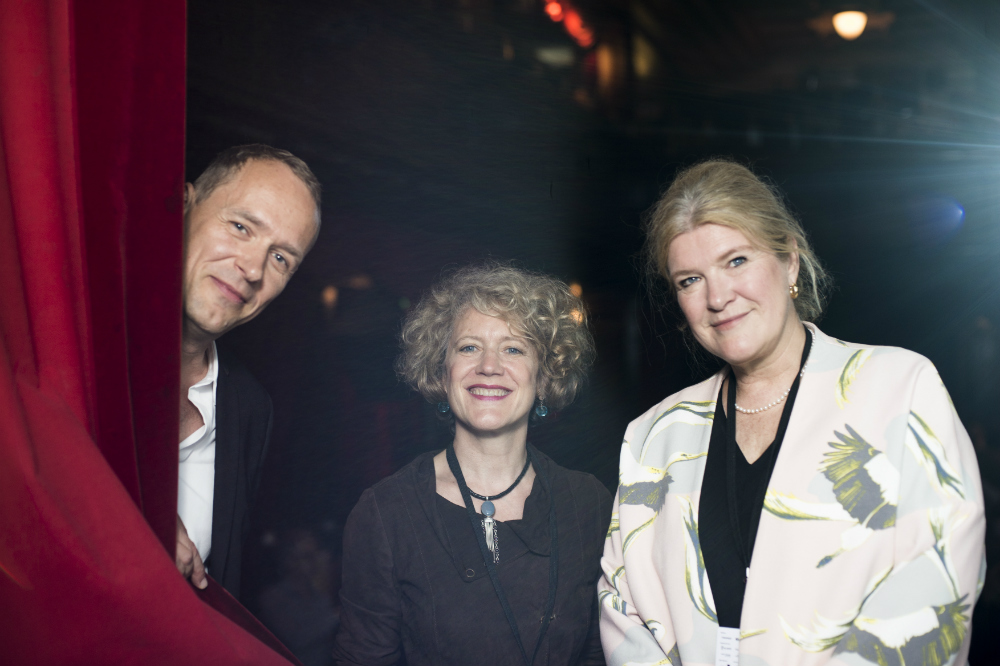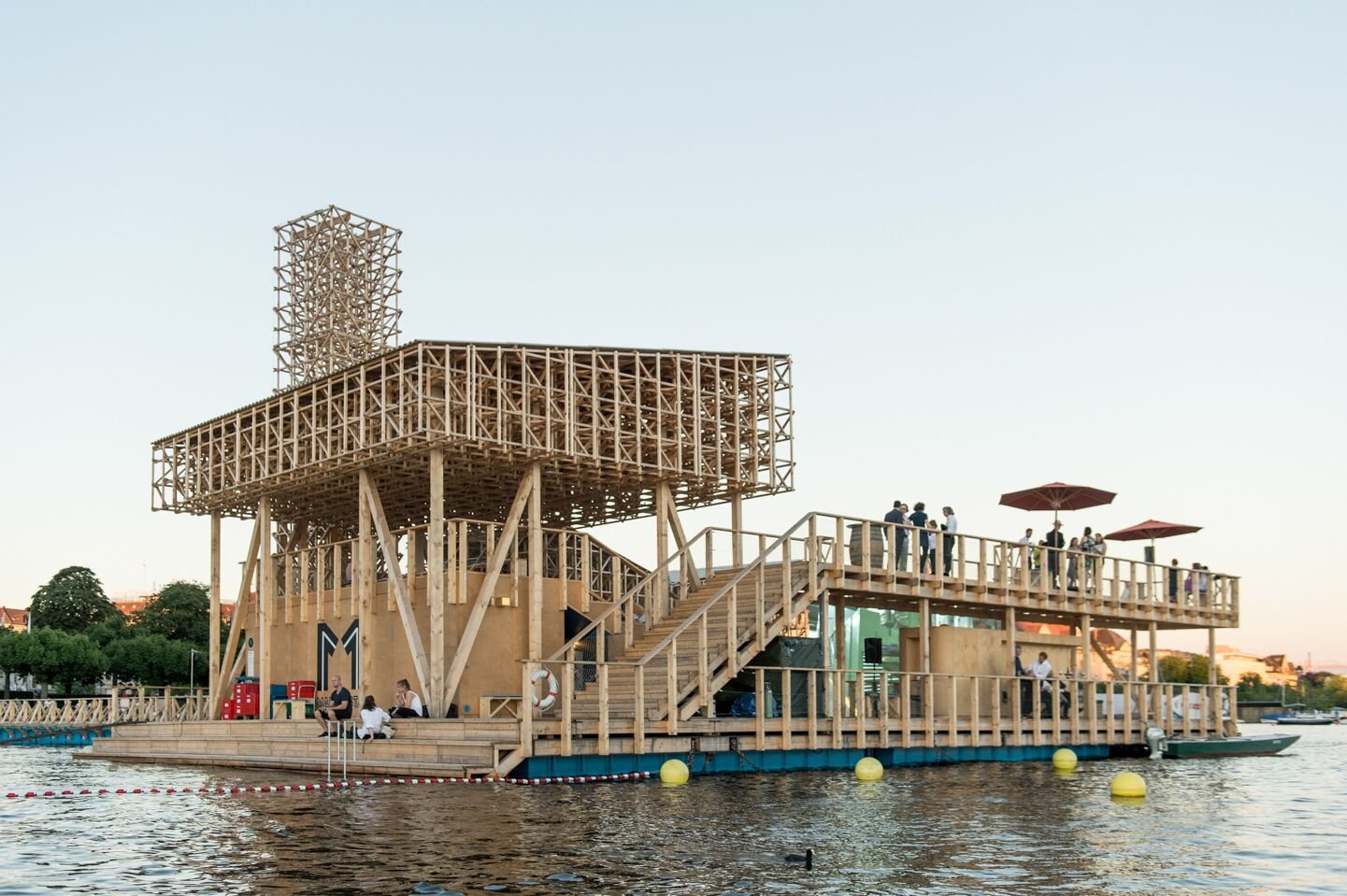Art World
Manifesta 11 Comes Under Fire for Alleged Unpaid Labor
Employees at Zurich institutions were replaced by volunteers.

Employees at Zurich institutions were replaced by volunteers.

Hili Perlson

The curator of the Manifesta 11, artist Christian Jankowski, the commissioner of the roving European biennale, Hedwig Fijen, and other organizers held an open discussion in Zurich on Tuesday, August 23, to evaluate the 11th edition of Manifesta, titled “What People Do for Money,” some 75 days into its 100-day run.
The public assessment took place at the Pavillon of Reflections, a floating pier featuring a swimming pool and an amphitheater, on Lake Zurich, built especially for the biennial and designed by Architecture students at the Institute of Technology (ETH) in Zurich.

The Pavillon of Reflections on Lake Zurich. Courtesy Manifesta11. Photo Eduard Meltzer.
After opening words by the organizers, members of the audience took the floor voicing harsh criticisms, with one major issue dominating the discussion: workers’ non-payment, as Florian Niedermann reports in the local paper Limmattaler Zeitung.
“The motto should be ‘What people do for no money'” a man in the audience reportedly quipped. He demanded that the ones responsible promise “here and now” in front of the public that outstanding wages would be paid “within the week.”
Related: 11 Uneasy Questions Raised by Manifesta 11
This is not the first time this issue has been raised. Prior to the opening in June, a number of articles appeared in the Swiss media discussing Manifesta’s payment policies. Workers were reportedly offered 3,700 Swiss Francs (approximately $3,840) for limited-time employment during the 100-day show. Regular employees at the participating institutions were required to take unpaid vacation for the duration of the biennale, and replaced by volunteers.
Peter Haerle, director of Zurich’s culture bureau, has confirmed some of these points at the discussion on Tuesday. Manifesta president Hedwig Fijen commented that she does not understand what the fuss is all about, given that no Swiss employment laws have been violated.
As for the outstanding payments, Manifesta’s deputy director Peter Paul Kainrath reassured the public that the matter is being taken care of and will be resolved shortly. “Because many of the staff members come from abroad, this has led to an increased workload at the tax office,” he explained.
artnet News contacted the Manifesta Foundation and received the following comment from Kainrath:
We already underlined that it is totally untrue that people working for Manifesta were not paid (or as Limmattaler Zeitung writes, “a lot of people were not paid”); the majority of people—also volunteers—receive their fees and salaries on time; a smaller group of volunteers were not on time in handing over some important documents which needed to be processed to get the right legal status for this kind of collaboration.We would like to underline that—different from other cultural institutions in Zürich—we decided to pay 5CHF / hour to the volunteers as a symbolic recognition of their great commitment to Manifesta.The [man in the audience] admitted afterwards that the problem he mentioned was related to only two (!) people amongst the volunteers due to administrative issues.Correctness for Manifesta is a value, as seriousness in describing problems in public should be mandatory.